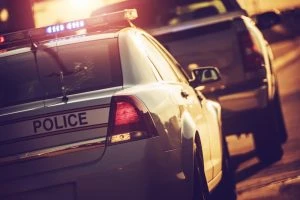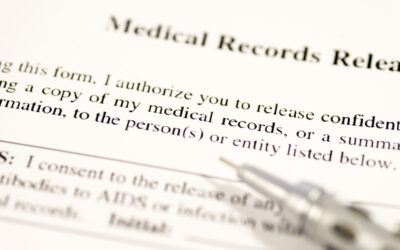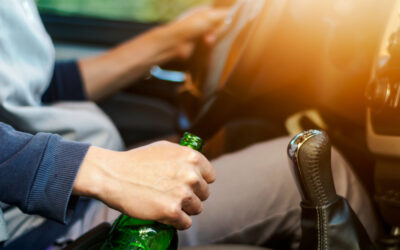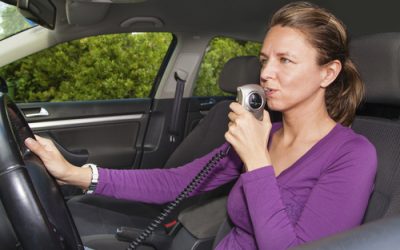
A DUI charge can tarnish your driving record, significantly increase your insurance rates and leave you facing heavy fines and even possible jail time. You may hear about or experience a breathalyzer test as part of a traffic stop for a suspected DUI. You may wonder what you can do if you must undergo a breathalyzer test and how to pass one.
The truth is there is only one surefire way to pass a breathalyzer test: to avoid drinking and driving altogether. Understanding how a breathalyzer works and when you must take the breathalyzer test can help you if you find yourself in a situation where an officer suspects you are under the influence while behind the wheel of a car.
What Is a Breathalyzer Test and How Does It Work?
A breathalyzer test is a device that measures the level of alcohol in your blood. The output of the device measures BAC or blood alcohol concentration. To take the test, you will blow into the mouthpiece of a device according to the instructions from an officer, which will then reveal how much alcohol is in your system at the time.
It is important to note there are different types of breath alcohol tests. A preliminary breathalyzer test is what a police officer will use at the scene after they pull you over for a possible DUI; it is a handheld device that gives an immediate readout. Although a chemical breathalyzer test may appear similar, it uses a different technology and is a more accurate test.
What Does a Breathalyzer Test Detect?
A breathalyzer will not detect marijuana, prescription medications, or other substances. It can and will only detect the presence of alcohol in an individual’s blood.
Are Breathalyzer Tests Immediately Effective?
The absorption of alcohol into the blood is not instantaneous; it does take some time, on average about 15 minutes, for alcohol to show up on a breathalyzer test after the person has had a drink. Once some time has passed from consuming an alcoholic beverage, the alcohol can remain in your system for up to 24 hours, although as time passes, the level of alcohol in the blood will dissipate.
Who Can Ask You to Take a Breathalyzer Test?
In the circumstances of motor vehicle driving, it is a police officer that will have the authority to request you to take a breathalyzer test. If an officer suspects you are under the influence, they may ask you to submit to a breathalyzer test, also known as a preliminary breath test.
Furthermore, suppose you are put under arrest for suspected DUI. In that case, you must take an additional breathalyzer test known as the chemical breath test once the police take you to the police station for processing and intake.
Does the Timing of a Request for a Breathalyzer Test Matter?
Yes. Field sobriety tests and breathalyzer tests done by police officers if they suspect a DUI are simply a means for them to gather sufficient probable cause to make an arrest. The law treats the type of breathalyzer test administered and the stage at which an officer asks you to submit to the test very differently.
In California, you can refuse a breathalyzer if you are at a DUI stop by an officer. These tests are historically inaccurate and administered unfairly.
California law allows you to refuse the preliminary blood test by an officer at the scene without fear of penalty. However, suppose an officer still arrests you for suspicion of DUI when they take you into the station and request a chemical breath test.
In that case, the protections under the law do not apply to this test, as it is mandatory as part of your arrest. Your refusal to submit to a chemical breath test at the police station can be subject to additional punishment and penalties under the law.
What Is the Best Way to Pass a Breathalyzer Test?
There are many tactics that some will claim can help you pass a breathalyzer test. The reality is that many of these tactics are just myths, and, in some cases, the techniques they claim will help you lower the readings can have the inverse effect and result in a higher BAC. The best way to pass a breathalyzer test is not to drink if you are getting behind the wheel of a car or to limit your consumption of alcohol to stay within the legal limits of BAC.
In some cases, you may be able to avoid arrest for a DUI by refusing the preliminary breathalyzer test at the scene. An individual should always refuse this test by a police officer before arrest. The officer often uses the test to get probable cause to proceed with an arrest.
If you refuse the test and they lack any other evidence, they may be unable to arrest you, or the arrest may be invalid in the future if an officer’s actions are outside the parameters of the law.
Can Breathalyzer Test Results Be Challenged?
When the state relies on breathalyzer test results to secure a conviction, challenging these results is one of the best ways to avoid a conviction.
What Factors Influence Breathalyzer Test Results?
Multiple factors can influence the results after a breathalyzer or other blood alcohol test. For example, your body’s chemical makeup, how much physical activity you have, the external temperatures at the time of your police stop, and other factors can all influence the breathalyzer test results in your case.
Another factor that could cause inaccurate breathalyzer test results includes exposure to fumes from gasoline, paint, or dry cleaning fluids.
Are Breathalyzer Test Results Always Accurate?
Although many might consider breathalyzer test results to be scientifically accurate, the truth is that breathalyzer test results are not conclusive. Sometimes, your DUI attorney could also challenge whether the breathalyzer test was conducted accurately. The results might be skewed if law enforcement officials did not have the experience or skill to use the breathalyzer accurately.
The breathalyzer test results may be considered inadmissible in some drunk driving cases. This is particularly true when the arresting officer in your case fails to provide you with an implied consent warning, even though California has implied consent laws that apply to anyone with a driver’s license.
Suppose the prosecutor was relying on the breathalyzer test results to secure a conviction, and these results are deemed inadmissible. In that case, you could have the DUI charges against you reduced to a lesser offense or dismissed altogether.
When Should You Contact a Lawyer for Breathalyzer-Related Concerns?
If you have been arrested for a DUI and undergo a breathalyzer test, you must contact a DUI attorney as soon as possible following your arrest. Only subject yourself to questioning with an attorney to advise you. A DUI attorney can help you with your case and assist you with the results of a breathalyzer test.
A DUI Attorney May Be Able to Fight Breathalyzer Results
Conviction of a DUI can significantly impact your future, but there are circumstances in which a lawyer can fight the results of these tests. It is common for a court to deem the results of a breathalyzer test invalid, whether due to malfunction, inaccuracies, or improper administration. After an arrest for DUI, call a Los Angeles DUI attorney for a consultation on your case or fill out our online contact form.






